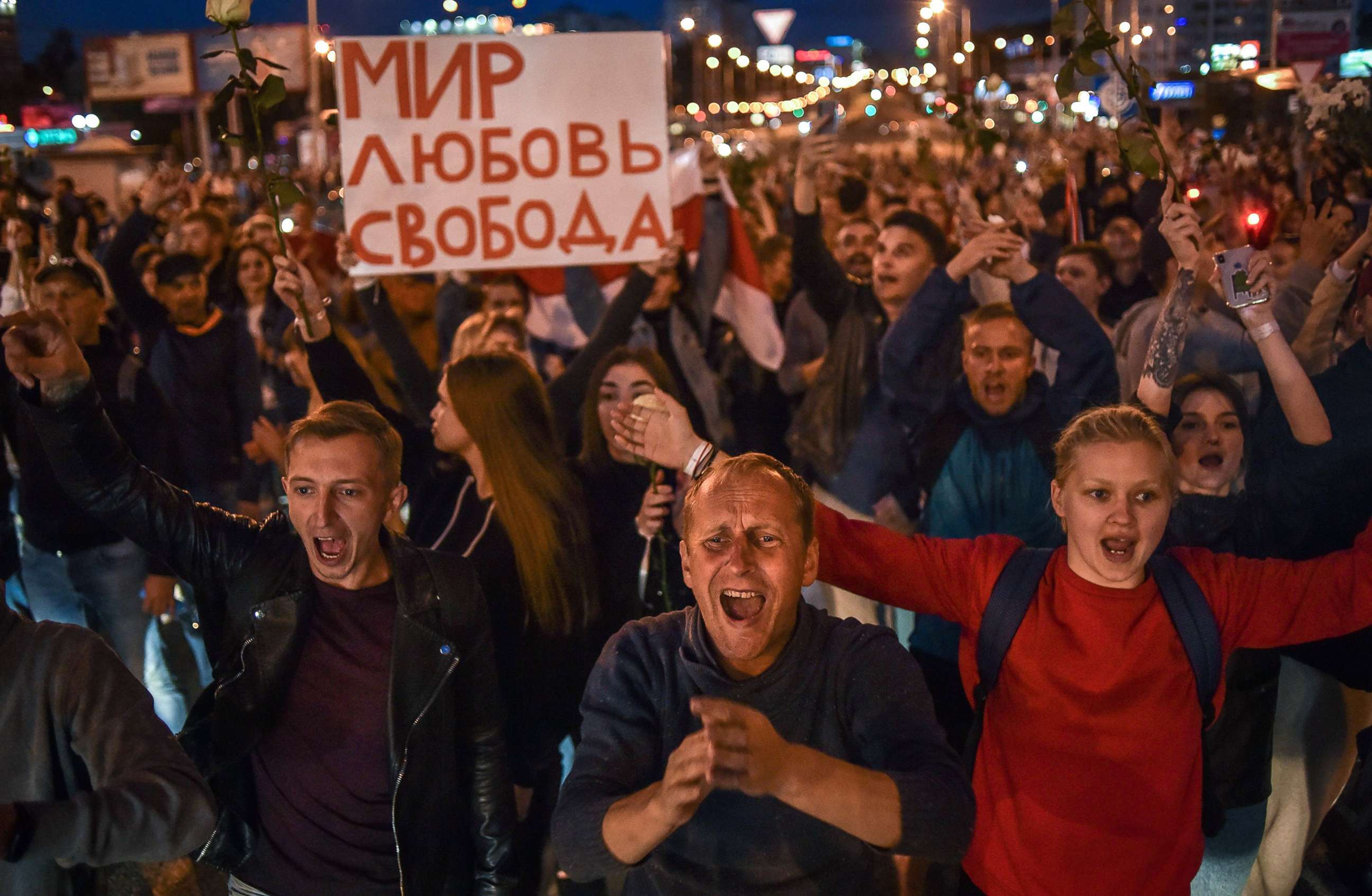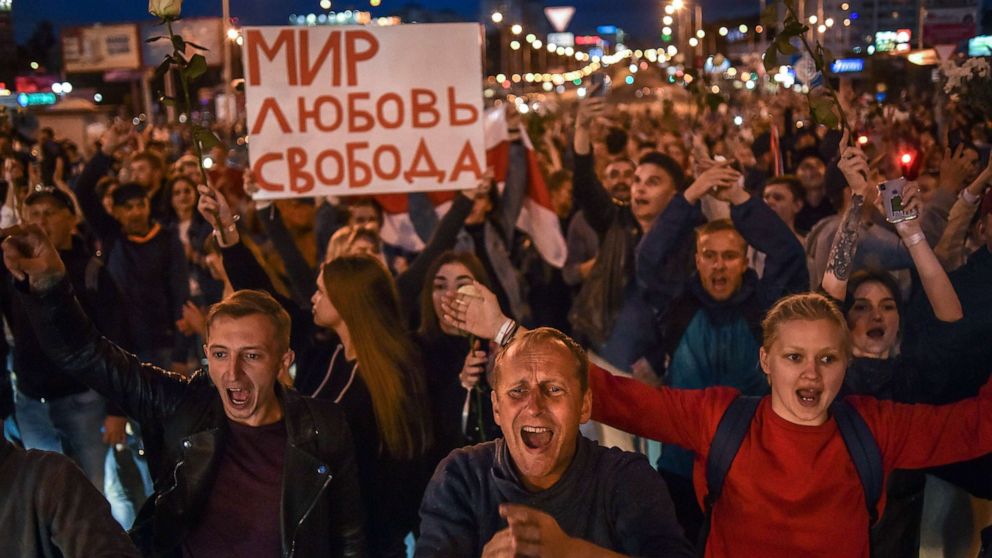Workers at major Belarus plants strike amid growing protests over election
Workers at some of Belarus’ largest manufacturing plants declared strikes on Thursday in protest of violence from the security services, a sign that the demonstrations that have gripped the country since last Sunday’s contested election are continuing to swell.
Hundreds of workers at the large Belarus Auto Factory (BelAZ) in the town of Zhodino were filmed walking out of the plant, chanting "Long live Belarus." There were also reports of strikes at several other plants, including the state-run Minsk Automobile Plant (MAZ) and Minsk Tractor Works (MTZ).
Local media quoted the workers at BelAZ as demanding a repeat of Sunday’s election that ended in a landslide win for Belarus’ long-time authoritarian leader Alexander Lukashenko amid allegations of widespread vote rigging. The workers also reportedly called for riot police to be expelled from the town.
Thousands of protesters also demonstrated across Belarus in many cities and towns. Videos and photos showed many protesters forming what they call "chains of solidarity," standing in long lines along roads waving objects painted with the red and white flag that is a symbol of the anti-Lukashenko opposition.
The protests appeared to be growing despite four days of brutal crackdown from the authorities since the election. The security services have deployed heavily armed riot police and interior troops against the peaceful protesters each night, using stun grenades and rubber bullets indiscriminately. Hundreds of people have been injured and at least one killed since Sunday. Belarus’s authorities have acknowledged security forces opened fire with live ammunition on demonstrators in the town of Brest on Tuesday night, wounding one person.
Authorities have said they’ve detained close to 7,000 people since the protests began. Minsk’s jails are reported to be overflowing, according to local journalists and accounts from those released. Hundreds of people have been gathering outside jails looking to find relatives who disappeared overnight during the protests.

The announcement of the factory strikes was a potentially significant development, signalling that the discontent in also shared among groups considered part of Lukashenko’s traditional base.
Lukashenko, often referred to as "Europe’s Last Dictator," has been in power for 26 years but in recent months has seen a groundswell of opposition. In Sunday’s election he was challenged by Svetlana Tikhanovskaya, a former teacher and stay-at-home mother who only joined the race after her husband -- a popular blogger -- was jailed and barred from running.
Tikhanovskaya attracted huge support from people fed up with Lukashenko and angered with his handling of the coronavirus pandemic, which he has dismissed.
Belarus’ elections commission on Thursday published what it said were the final results of the election, that bumped up Tikhanovskaya’s share of the vote to 14.92%, and reduced Lukashenko’s to 64.49%.
But many people in Belarus believe the real result is still very different and the protesters are demanding the election be held again.
In a video that went viral in the country, workers at the autoplant in Zhodino are seen confronting a local mayor who has come to speak with them. A man shouts asking how many of the crowd voted for Tikhanovskaya -- virtually every workers’ hands shoot up.
Tikhanovskaya left Belarus for Lithuania on Tuesday, suggesting she had faced threats to her family. But the protests, which are largely leaderless, have continued.
Many people demonstrating told media on the ground they had been moved to come out because of the violence from the security services.
“The main difference now is that well again people protest across the country, everywhere, because everybody feels fed up,” Hanna Liubakova, a journalist based in Minsk said by phone on Wednesday.
"People are so angry. They have so many reasons for discontent. And this will not disappear," she said.
Two presenters from state television said they were resigning on Wednesday night in light of the situation in the country. A number of prominent Belarusian celebrities have also posted statements condemning the violence from police.
There have been growing calls in Europe for the European Union to impose sanctions on Lukashenko over the crackdown. Germany, Lithuania, Latvia and Sweden have spoken publicly in favor of sanctions, ahead of emergency talks between EU foreign ministers on Friday.
Reuters on Thursday reported the EU was likely to impose sanctions on Belarus as soon as the end of this month.
The U.S., which restored diplomatic relations with Belarus only last year after a decade pause prompted by a previous crackdown, has so far not joined those calls. Secretary of State Mike Pompeo on Wednesday criticized the violence and said the election had not been free and fair.
He said the U.S. was studying its options, mentioning the possibility of stopping recently agreed oil deliveries to Belarus, but noted "we’re still pretty fresh off this election."
"What is it that we believe that we can do, not just the United States unilaterally, but in a multilateral way to deliver good outcomes for the Belarusian people," he said in an interview with Radio Free Europe/Radio Liberty. "And we need to see how things settle out here in the near future."




